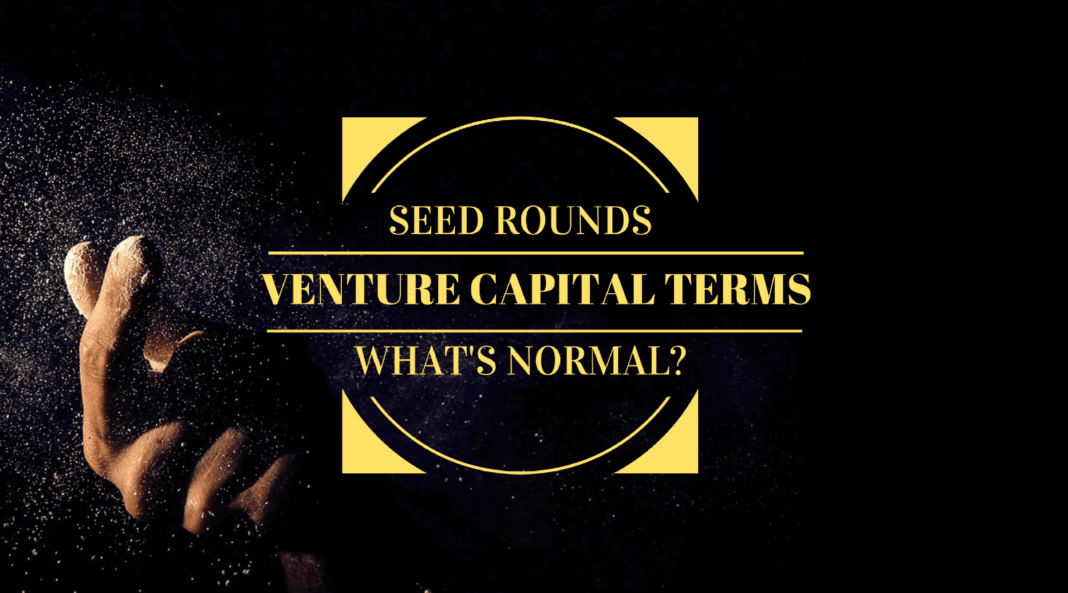What are the standard venture capital terms? Good question, right! So you are fundraising and you have interest from a venture capital investor. Blue Shirt Capital have issued you with a term sheet and now you need to figure out what venture capital terms are kosher, where you are being taken advantage of, and what you need to negotiate for. Only, what terms are normal?!
Fortunately I found a report that was done 2015 in the United States (obviously) by a law firm that specializes in venture capital. For early stage deals the numbers are pretty good. They don’t have numbers for everything, so Fenwick & West have a quarterly report for later stage deals. When I reference later stage deals, I am referencing this.
In it you can see what venture capital terms are standard for:
- Convertible notes
- Priced rounds
- SAFE notes
So next time an investor tells you what terms are standard, check this out and call BS if needed. I have seen the most egregious term sheets from private equity  investors who will say “trust me, I know what I am doing.”
investors who will say “trust me, I know what I am doing.”
Convertible note standard venture capital terms
- Average convertible note size: $1 million
- Number of investors: “party rounds”Are pretty common here, The average is 13
- Interest rate: 4% to 8%, 60% of the times
- Conversion discount: 20% is standard, 70% of the time
- Valuation cap: $7.5m
- Conversion valuation caps: Caps are totally standard. They are used 95% of the time
- Warrants: Never used
- Conversion at change of control: This is standard, 70% of the time
- Change of control premium: This is not standard, but is becoming more popular. It is used 40% of the time and typically it is 2x their money back. 500startups put in their KISS note
- Duration/maturity of note: 12-24 months is standard and used 76% of the time
- Secured notes: Not standard. Never supported by personal or company assets
- Board seats for note investors: None. 5% of the time
- Most Favoured Nation: Not standard, used 15% of the time. Typically this is used when uncapped notes are used and the note holder doesn’t want notes issued over them that are capped
- Preemption/pro-rata rights: Pretty standard, used 50% of the time
Priced round terms standard venture capital terms
Some comments:
- Participating preferred stock: this is not standard and don’t accept it. There are investors who ask for it, unless your valuation is totally out of whack there is no reason for you to accept this. Explain to the investor if you give them it, all future investors will get them too and being bottom of the stack is not where they want to be
- Pro rata rights: these are totally fine to accept. Anything you might want to consider doing is setting a minimum floor for whom receives these. These days it’s pretty standard for everyone to have pro rata rights
- Liquidation preference: this is standard, every investor will ask for one, there is no point in fighting this.
- Anti-dilution protection: This is also fairly standard but not as much as this report suggests. Only accept ‘broad weighted-average” since this is used 99% of the time (a least for later stage deals). Do not accept full ratchets.
- Cumulative dividends: These are not normal. In later stage deals they are only seen ~5% of the time
- Redemption: don’t except redemption, you will only see you this 3% of the time. Later stage deals this is only seen around 10% of the time
SAFE note standard venture capital terms
Later-stage standard venture capital terms: Fenwick and West Report
[pdf-embedder url=”https://wordpress-153384-440792.cloudwaysapps.com/wp-content/uploads/2017/01/Silicon-Valley-Venture-Capital-Survey-Second-Quarter-2019.pdf”]




